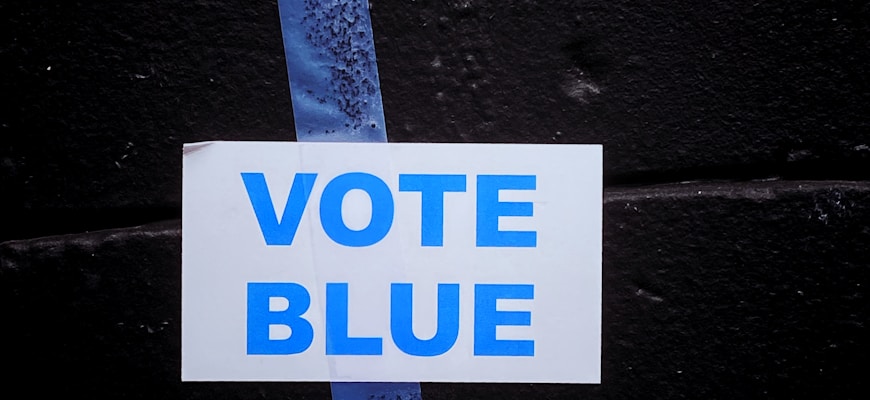Blockchain in Voting Systems: Ensuring Fair and Secure Elections

- Understanding Blockchain Technology
- Challenges in Current Voting Systems
- Benefits of Implementing Blockchain in Voting
- Enhancing Transparency and Accountability
- Addressing Concerns of Voter Fraud
- Future Implications of Blockchain in Elections
Understanding Blockchain Technology
Blockchain technology is a decentralized and distributed ledger system that securely records transactions across a network of computers. Each transaction is stored in a “block” that is linked to the previous block, creating a chain of blocks – hence the name “blockchain.” This technology ensures transparency and immutability, making it an ideal solution for ensuring fair and secure elections.
One of the key features of blockchain technology is its transparency. All transactions are recorded on a public ledger that is accessible to all participants in the network. This transparency helps to prevent fraud and manipulation, as any attempt to alter the data would be immediately visible to all parties involved. This makes it virtually impossible to tamper with election results without detection.
Another important aspect of blockchain technology is its security. The data stored on a blockchain is encrypted and distributed across multiple nodes in the network. This makes it extremely difficult for hackers to compromise the system, as they would need to gain control of a majority of the nodes simultaneously. Additionally, the decentralized nature of the blockchain means that there is no single point of failure, further enhancing security.
Blockchain technology also offers verifiability, as each participant in the network can verify the integrity of the data independently. This eliminates the need for a central authority to oversee the election process, reducing the risk of bias or corruption. By using blockchain in voting systems, we can ensure that every vote is counted accurately and that the results are truly reflective of the will of the people.
In conclusion, blockchain technology has the potential to revolutionize the way we conduct elections by providing a transparent, secure, and verifiable system for recording and counting votes. By leveraging the power of blockchain, we can ensure that elections are fair and free from manipulation, ultimately strengthening democracy and restoring trust in the electoral process.
Challenges in Current Voting Systems
In the current voting systems, there are several challenges that need to be addressed to ensure fair and secure elections. One of the main issues is the lack of transparency in the voting process, which can lead to doubts about the integrity of the results. Additionally, traditional voting systems are vulnerable to manipulation and fraud, as they often rely on centralized authorities to oversee the elections.
Another challenge is the limited accessibility of voting for certain groups of people, such as those living abroad or with disabilities. This can result in disenfranchisement and undermine the principles of democracy. Moreover, the process of counting and verifying votes can be time-consuming and prone to errors, which can delay the announcement of election results and create uncertainty among the public.
Furthermore, there is a growing concern about the security of voting systems, especially in the digital age where cyber threats are becoming more sophisticated. Hackers could potentially infiltrate electronic voting systems and manipulate the results without leaving any trace. This poses a serious risk to the integrity of elections and the democratic process as a whole.
Overall, it is crucial to address these challenges in current voting systems to ensure that elections are conducted in a fair, transparent, and secure manner. Implementing blockchain technology in voting systems could help overcome these issues by providing a decentralized and tamper-proof platform for recording and verifying votes. By leveraging the benefits of blockchain, we can enhance the integrity of elections and uphold the democratic values that are essential for a functioning society.
Benefits of Implementing Blockchain in Voting
Implementing blockchain technology in voting systems offers numerous benefits that can help ensure fair and secure elections. One of the key advantages is the transparency provided by blockchain, as it allows for a public ledger that records all transactions in a secure and immutable way. This transparency helps to build trust among voters, as they can verify that their votes have been accurately recorded and counted.
Another benefit of using blockchain in voting is the enhanced security it provides. The decentralized nature of blockchain makes it extremely difficult for any single entity to manipulate or tamper with the voting data. This helps to prevent fraud and ensures that the integrity of the election process is maintained.
Additionally, blockchain technology can help to increase voter turnout by making the voting process more convenient and accessible. With blockchain-based voting systems, voters can cast their ballots from anywhere with an internet connection, eliminating the need to physically go to a polling station. This can help to overcome barriers such as long lines and limited polling hours, making it easier for people to participate in the democratic process.
Furthermore, blockchain can help to reduce the costs associated with running elections. By automating many of the processes involved in voting, such as voter registration and ballot counting, blockchain technology can streamline the election process and make it more efficient. This can help to save time and resources for election officials, while also reducing the risk of human error.
Overall, implementing blockchain in voting systems can help to ensure that elections are conducted in a fair, transparent, and secure manner. By leveraging the benefits of blockchain technology, we can strengthen the democratic process and uphold the integrity of our electoral systems.
Enhancing Transparency and Accountability
One of the key benefits of implementing blockchain technology in voting systems is the enhanced transparency and accountability it offers. By leveraging the decentralized and immutable nature of blockchain, voters can have confidence that their votes are recorded accurately and securely. This level of transparency helps to prevent fraud and manipulation, ensuring fair and trustworthy elections.
Blockchain technology also allows for greater accountability in the voting process. Every transaction or change made to the blockchain is recorded and time-stamped, creating a transparent and auditable trail of all activities. This makes it easier to identify any discrepancies or irregularities in the voting system, holding all parties involved accountable for their actions.
Moreover, the use of blockchain in voting systems can help increase voter turnout by providing a more convenient and accessible way for people to cast their votes. With blockchain, voters can participate in elections from anywhere in the world, eliminating the need to physically go to a polling station. This can lead to a more inclusive and participatory democracy, where all eligible voters have the opportunity to have their voices heard.
Overall, the integration of blockchain technology in voting systems not only enhances transparency and accountability but also promotes trust in the electoral process. By leveraging the unique features of blockchain, such as decentralization and immutability, we can ensure that elections are conducted fairly, securely, and with the utmost integrity.
Addressing Concerns of Voter Fraud
Addressing concerns surrounding voter fraud is a top priority when implementing blockchain technology in voting systems. By leveraging the immutability and transparency of blockchain, we can significantly reduce the risk of fraudulent activities during elections.
One of the key advantages of using blockchain is its ability to create a secure and tamper-proof ledger that records every transaction or vote. This means that once a vote is cast, it cannot be altered or deleted, ensuring the integrity of the electoral process.
Furthermore, blockchain technology allows for real-time monitoring of the voting process, enabling election officials and stakeholders to track each vote as it is cast. This level of transparency not only deters potential fraudsters but also provides voters with confidence in the system.
Additionally, the decentralized nature of blockchain ensures that there is no single point of failure that can be exploited by malicious actors. This distributed network of nodes makes it extremely difficult for anyone to manipulate the results of an election without being detected.
Overall, by incorporating blockchain into voting systems, we can address the concerns of voter fraud and help ensure that elections are fair, secure, and trustworthy. This innovative technology has the potential to revolutionize the way we conduct elections, making them more transparent and reliable for everyone involved.
Future Implications of Blockchain in Elections
The implementation of blockchain technology in voting systems has the potential to revolutionize the way elections are conducted. By utilizing blockchain, we can ensure a transparent, secure, and tamper-proof voting process.
One of the key future implications of blockchain in elections is increased trust in the electoral process. With blockchain, every vote is recorded on a decentralized ledger that is immutable and transparent. This means that voters can have confidence that their votes are being accurately counted and cannot be altered after they have been cast.
Furthermore, blockchain can help to eliminate issues such as voter fraud and manipulation. Since each vote is encrypted and timestamped on the blockchain, it becomes nearly impossible for malicious actors to interfere with the results of an election. This increased security can lead to fairer and more democratic outcomes.
Another important implication of blockchain in elections is increased voter turnout. With the ability to vote securely from any location using a smartphone or computer, more people may be inclined to participate in the electoral process. This could lead to a more representative and inclusive democracy.
Overall, the future implications of blockchain in elections are promising. By leveraging this technology, we can create a more secure, transparent, and efficient voting system that upholds the integrity of democratic processes. As blockchain continues to evolve and become more widely adopted, we may see a fundamental shift in the way elections are conducted around the world.





